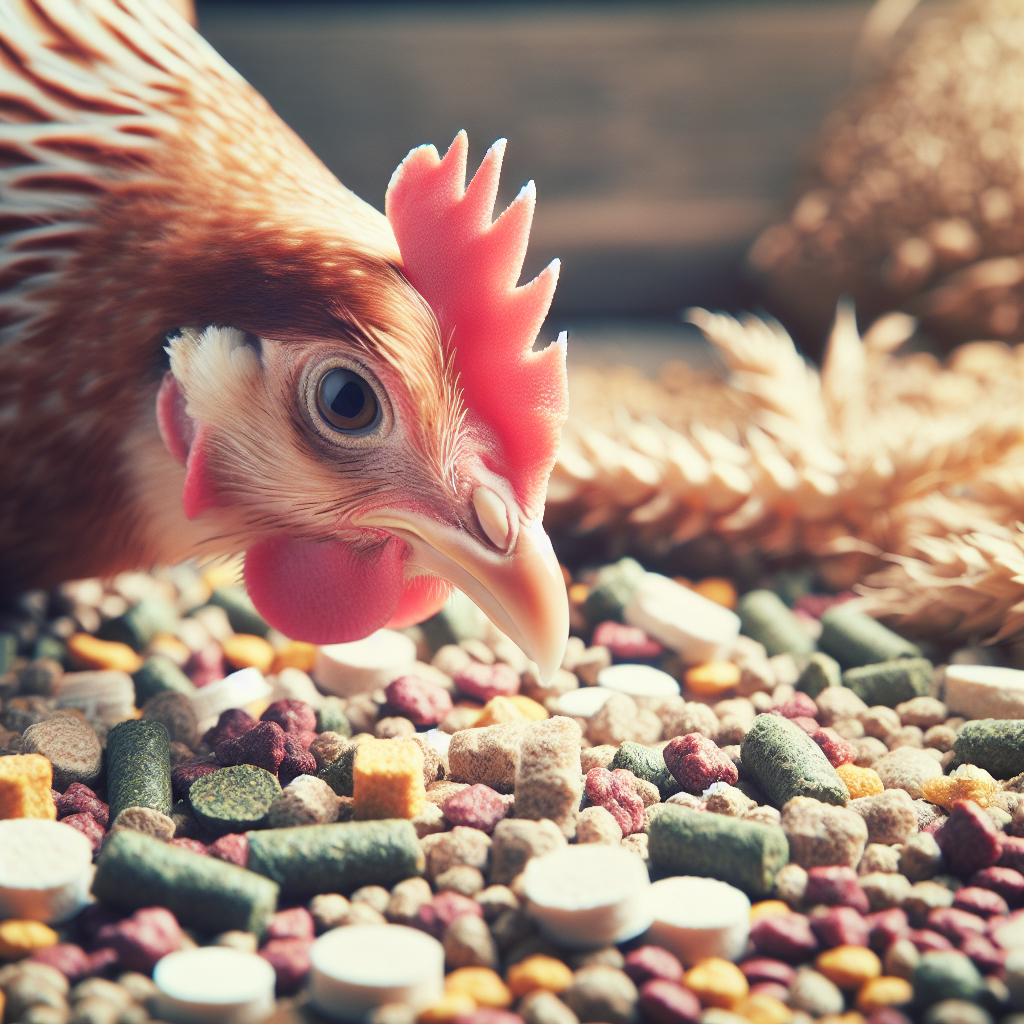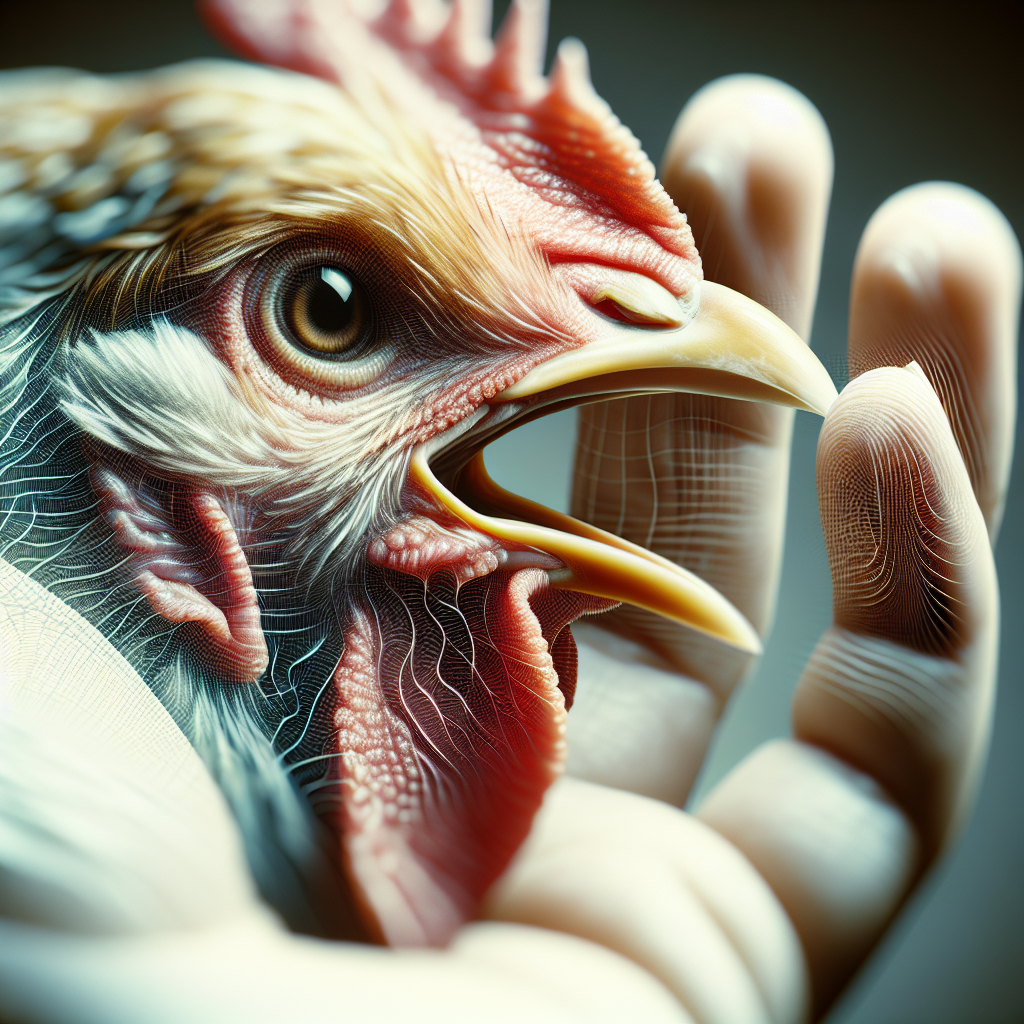Imagine you have a flock of chickens and you’re eager to try out some new feed types. But before you suddenly switch up their diet, it’s crucial to understand the best practices for introducing new feed to ensure the health and well-being of your feathered friends. In this article, we’ll explore some helpful tips and guidelines for successfully introducing new feed types to chickens, allowing them to adapt and thrive with their newly expanded menu options. So let’s dive right in and discover the secrets to keeping your chickens happy and well-fed!
Selecting the Best Feed Types
When it comes to selecting the best feed types for your chickens, there are several factors to consider. First and foremost, you need to take into account their specific nutritional requirements. Different stages of a chicken’s life may require different levels of protein, vitamins, and minerals. Consult with a poultry nutritionist or do some research to determine the appropriate feed formula for your flock.
Cost and availability are also important considerations. You want to choose a feed that fits within your budget without compromising the quality of nutrition. Additionally, you should ensure that the feed you select is readily available in your area. It’s a good idea to have a reliable source of feed to avoid running out or having to travel long distances to restock.
Another crucial factor in selecting the best feed is evaluating its composition. Look for a feed that contains the necessary nutrients and is free from harmful additives or contaminants. Reading and understanding the ingredient list and nutritional analysis on the feed label can provide valuable insights into the feed’s quality. Conducting some research or seeking advice from other experienced chicken owners can also be helpful in making an informed decision.
Gradual Transition
Introducing new feed types to chickens requires a gradual transition to prevent digestive upset or resistance to the change. Starting with small quantities is key. Begin by mixing a small portion of the new feed with the existing feed. Gradually increase the proportion of the new feed over several days or weeks until it replaces the old feed entirely. This allows the chickens’ digestive systems to acclimate to the new feed gradually.
To make the transition smoother, mix the new feed with familiar feed that your chickens are already accustomed to. By incorporating a familiar ingredient, the chickens are more likely to accept the new feed. For example, you can mix a small amount of the new feed with their favorite treat or layer pellets they are used to eating. This familiarity can help ease the transition and reduce potential resistance.
While transitioning, it’s important to monitor the chickens’ consumption closely. Keep an eye on their appetite and ensure they are eating enough. If you notice a decrease in feed intake or significant weight loss, it may indicate resistance to the new feed or other health issues. Adjust the transition speed accordingly and consider consulting with a poultry expert if needed.
Ensuring Optimal Feeding
Ensuring optimal feeding conditions plays a vital role in the overall health and well-being of your chickens. One crucial aspect is providing adequate water at all times. Chickens require access to clean and fresh water to stay hydrated, aid digestion, regulate body temperature, and support overall health. Check waterers regularly to ensure they are clean, free from debris, and functioning properly.
In addition to water, freshness and cleanliness are also essential in the feeding process. Make sure to regularly clean feeders to prevent the growth of mold, bacteria, or other contaminants. Discard any leftover feed that has been exposed to moisture or has gone stale. Offering fresh feed to your chickens promotes their overall health and reduces the risk of digestive issues.
Another important practice in optimal feeding is to avoid overfeeding. Providing more feed than necessary can lead to obesity, which comes with its own health complications. Follow the recommended feeding guidelines based on the age and breed of your chickens. Adjust the quantity as needed, taking into account factors like weather conditions, activity levels, and any dietary restrictions or recommendations from a poultry nutritionist.
Monitoring Chicken Health
Monitoring the health of your chickens is crucial in ensuring their overall well-being. By observing behavioral changes, you can catch any potential health issues early on. Pay attention to changes in appetite, lethargy, aggression, feather condition, or abnormal behavior. These signs may indicate illness or nutritional deficiencies. Promptly address any concerns by seeking advice from a veterinarian or poultry expert.
Checking the fecal quality of your chickens is another important aspect of monitoring their health. The appearance, consistency, and color of chicken droppings can provide valuable insights into their digestive health. Healthy droppings should have a well-formed shape, firm consistency, and be of the appropriate color. Abrupt changes in droppings, such as diarrhea or abnormal colors, can be signs of gastrointestinal issues that require attention.
If you notice any concerning symptoms or changes in behavior or feces, consulting a veterinarian who specializes in poultry health can offer valuable guidance. A professional can help diagnose any underlying issues, recommend appropriate treatments, and provide guidance on adjusting the chickens’ feed or overall management practices.
Addressing Potential Issues
When introducing new feed types to chickens, it’s important to address potential issues that may arise. One such concern is allergies or sensitivities. Just like humans, chickens can develop allergies or sensitivities to certain ingredients or additives present in the feed. If you notice any allergic reactions, such as skin irritations or respiratory distress, discontinue the new feed and consult a veterinarian to determine the cause and find suitable alternatives.
Moreover, adjusting the feeding program gradually is vital when addressing any potential feeding issues. Sudden or drastic changes in feed can result in digestive upset, decreased appetite, or other health problems for your chickens. If you need to switch feeds or make modifications to the existing feed, do so gradually over a period of time. This allows the chickens to adapt and reduces the risk of disrupting their digestive systems.
In some cases, supplementing the chickens’ diet with probiotics can be beneficial. Probiotics are live microorganisms that promote healthy gut bacteria and improve digestion. When introducing new feed or during periods of stress, such as molting or extreme weather conditions, supplementing with probiotics can support the chickens’ overall health and help maintain a balanced gut microbiome. Consult with a poultry nutritionist or veterinarian to determine if probiotics are suitable for your flock and to get recommendations on effective products.
By following these best practices and considering the nutritional requirements, cost, and composition of feed, you can successfully introduce new feed types to your chickens. Gradually transitioning, monitoring their health, and addressing any potential issues along the way will ensure that your chickens receive the optimal nutrition they need for a healthy and productive life.




